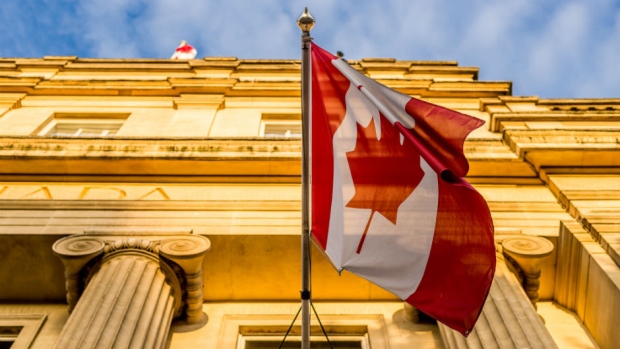Oct 17, 2017
Analysts see Canada's growth moderating, one more rate hike this year: Poll
, Reuters

BENGALURU — Canada's robust pace of economic growth in the first half of the year is likely to moderate over the coming months, but not enough to stop the Bank of Canada from hiking interest rates for a third time by year-end, a Reuters poll of analysts showed.
The economy grew at its strongest pace since 2002 in the first six months, emerging as a leader among its industrialized peers and spurring the central bank to hike interest rates twice back-to-back, in July and September.
But growth stalled in July and the poll of more than 40 analysts showed the pace of expansion cooled to an annualized 2.2 per cent in the third quarter from a near-six year high of 4.5 per cent in the second quarter.
Still, the economy is forecast to expand 3.0 per cent this year and 2.1 per cent in 2018, up from estimates of 2.6 and 2.0 per cent in a poll in July, and in line with the International Monetary Fund's latest forecasts.
"With the economy so close to full capacity, we think that the Bank of Canada is going to continue with the gradual removal of accommodation later this year," said Josh Nye of RBC Capital Markets.
The median consensus in the latest Reuters poll was for overnight rates to rise 25 basis points in December to 1.25 per cent. Just two forecasters expected an increase at the upcoming Oct. 25 policy-setting meeting.
Respondents put the median probability of a rate hike in October at 20, and for December at 51 per cent. Markets are currently pricing in a 21-per-cent chance for October and 48 per cent for December.
If the central bank does hike rates again this year, it will fall directly in line with a U.S. Federal Reserve that is also expected to raise rates for the third time by year-end.
RISKS GALORE
Although analysts expressed confidence the Bank of Canada was on the right policy path, they said there were many risks, including muted inflation, disappointing exports and the uncertain fate of the North American Free Trade Agreement (NAFTA).
Inflation in Canada, much like in other advanced economies, remains well below the central bank's two-per-cent goal. It is unlikely to reach target at least until July next year, the poll showed.
"Low inflation figures are likely to bring the same kind of debate within the Bank of Canada as we are currently seeing at the U.S. Fed," said Sebastien Lavoie, chief economist at Laurentian Bank Securities.
With exports already falling in the three months to September, future Canadian trade is uncertain with Canada, the United States and Mexico in the midst of renegotiating NAFTA. Canada sends over 75 per cent of its exports south of the border.
U.S. President Donald Trump has threatened repeatedly to scrap the pact and the U.S. has already proposed trade duties on Bombardier Inc's (BBDb.TO) CSeries jets and softwood lumber.
On Saturday, negotiators from Canada and Mexico grappled further with U.S. demands to drastically alter NAFTA.
"That's certainly the top external risk for Canada's economy right now and it seems even in the last week that risks surrounding NAFTA have increased," Nye said.
About one-third of economists who answered an extra question in the latest poll said they had become more pessimistic over the past month on the outcome of the trade talks. The rest said their opinion had not changed.
Lacklustre export growth could leave the economy even more dependent on household borrowing and make the ongoing correction in certain housing markets, where much of the debt is invested, more painful, economists said.
The average Canadian household owed $1.68 for every dollar of disposable income in the second quarter.
"The lingering uncertainty from the U.S. regarding trade policy coupled with the high level of household debt will push the Bank of Canada to remain on hold for this month," said Jean Paul Lam, professor of economics at University of Waterloo.
